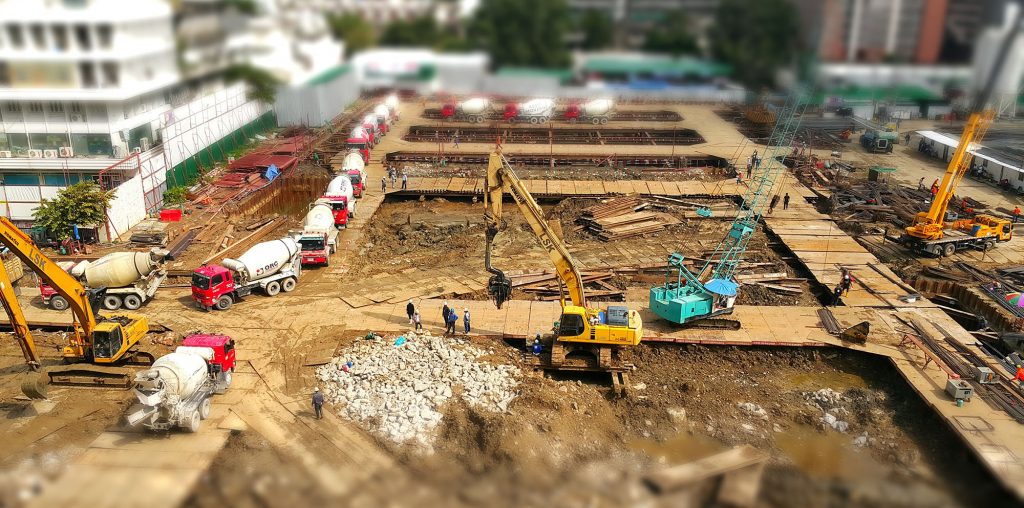
Development finance is a good option when you need funding for a large project that involves building, converting or refurbishing properties. It’s a short-term loan that can be used for residential or commercial purposes. Here, we’ll detail how it works, what you can use it for, its advantages and more.
How development finance works
The funds are usually released in stages throughout the project to ensure your cash flow is managed successfully. An initial payment lets you begin the process, such as securing the site. Then, based on the schedule of works you have agreed with your lender, further payments are released to keep your project running efficiently and on target.
Monthly interest is charged on the loan and this is usually rolled up. This means that you repay it at the end of the term when the entire balance of the loan is repaid in full. In the meantime, all of your resources can be focused on progressing the project rather than making ongoing payments. As you are charged a monthly interest rate, it is best to repay the loan as soon as you can to keep your borrowing costs to a minimum.
What can you use a development loan for?
There are various types of development projects that you can use the funding for. These can include building properties from scratch as well as property conversions, refurbishments and restoration projects.
Refurbishment and renovation finance
Light refurbishment: This is generally for aesthetic purposes rather than making structural changes. For example, installing central heating, a new kitchen, a new bathroom and windows.
Heavy refurbishment/renovation: This can include a loft conversion, moving internal walls, new plumbing and electrics, a property extension and converting a building into flats.
New-build development finance
You can use the funds to purchase a plot of land as well as to finance the build costs when working on a development project from the ground up.
Loan-to-value (LTV) ratios of up to 70% can usually be considered for the land costs and 100% for the build costs. This is on the proviso that the loan amount isn’t in excess of 70% of the gross development value (GDV). An LTV ratio that is this high, though, is usually offered by a specialist lender. You will also likely have to pay higher rates and fees. For a better deal, try to keep the development finance plan up to 60% of the land cost as well as 100% of the build cost.
An example of new-build development finance is when you want to buy a plot of land in Bexleyheath with planning permission to build four 2 bedroom houses. The land is for sale at £200,000 and the build cost is £450,000. You expect each house to sell for £300,000, giving you a GDV of £1,200,000 (4 x £300,000).
Using development finance, you have secured a deal for 70% of the cost of the land (£140,000). You’ve also secured the full £450,000 build cost. This means your agreed loan amount is £590,000, with £140,000 being released as your first instalment to go towards buying the land. As you build the houses, the other £450,000 will be released in stages. This keeps your cash flow steady throughout the development project.
Who can apply?
Whether you’re a first-time developer, an experienced developer or a professional builder, development finance is available to you. You may want to use the funds to build your own home in Bexley, for example, or to build houses on a plot of land to sell on for profit. You may already have a project underway but need extra funds to finish it.
As long as you can show the lender that your project is realistic and profitable, you should be able to secure the development finance you need. Typically, this will be up to 100% of the costs for light and heavy refurbishments and up to 70% of a property’s value.
As an experienced developer looking to work on several units, you should be able to secure up to 90% of the total costs. If you are an inexperienced developer or are worried about having a bad credit rating, there are specialist lenders who will consider your application. Some lenders will also consider 100% development finance. Therefore, it’s still possible to receive funding even if you don’t have a deposit.
The advantages of using development finance
Even if you’re lucky enough to have sufficient funding for your project, making use of development finance can still be beneficial.
- It allows you to undertake bigger projects than you would be able to without the extra funding. In turn, this helps to increase your future profit.
- You can secure funding on properties that would otherwise be declined by lenders, such as derelict buildings.
- Your cash isn’t tied up in the project, enabling you to use it elsewhere as needed.
- You can take on a new project without having to wait until the existing one is finished and sold.
- As a short-term loan, it is repaid fairly quickly. This means that your total borrowing costs are considerably lower than they would be with many longer-term finance options.
- Interest is usually charged on the funds as they’re released during the project rather than on the overall loan amount. This helps to keep your costs lower.
- It increases your return on investment (ROI) because you invest less capital in the project. Whilst you still have to pay the financing costs from the profit, you get a greater return on the amount you have personally invested.
How the loan is repaid
The three most common ways to repay development finance are to:
- Sell the property or site when it’s finished. The proceeds of the sale are used to repay the loan.
- Refinance to development exit finance. This repays the original loan and gives you funds until the build is completed or the property is sold. It is usually at a lower rate than the first loan.
- Arrange long-term refinancing. When you plan to keep the property for yourself or to rent it out as an investment, refinancing is usually the best option. An example is to refinance to a commercial mortgage.
Get expert financial help
Your specialist broker in Kent, London or Edinburgh can provide you with invaluable advice when looking for development finance. They can make sure that your application is completed to the demanding standard required by lenders. This ensures that it’s successful and you receive the funding you need. Many lenders only offer development finance through brokers. This means you can rest assured that you have access to a wider range of deals than if you approach lenders direct.


Pingback: penis envy mushroom effects